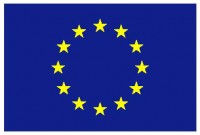Environmental organisations are warning that the EU might be trying to “water down” the package.
The European Commission (EC) reported it would be axing its plans for a circular economy in January 2015, before reconsidering and revealing it would increase funding, launching a public consultation, to which both UKCRA and ETIRA contributed their views from remanufacturers. However, reports suggested it would dilute any circular economy package, and doubted their potential.
Despite this, the new package was launched in December 2015 and adopted that month, with a packaging waste recycling target of 75 percent for member states by 2030, and received a funding boost of around €24 billion ($26.3 billion) from the EU soon after. Deputy Head of the European Commission’s Waste Unit, Julius Langendorff, stated it “will take more than” a year to implement, though it was said to be “progressing well” in April, before being questioned again in June.
The EU had also previously revealed it was planning “tough” enforcement of the circular economy package, while other areas of the EU warned earlier this year that the package could be seen as a “threat” to certain stakeholders. One recent development saw Germany allegedly plan to “call for removal of EU recycling targets”, though rumours suggested the plan could be approved early next year.
Materials Recycling World has reported however that environmental organisations including Aldersgate Group, the European Environmental Bureau (EEB) and the Green Alliance have “lobbied members of the European Council to retain proposed recycling targets” after accusations were made that “it is trying to ‘water down’ draft legislation’. Current suggested targets include recycling 65 percent of municipal waste and 75 percent of packaging waste by 2020.
The environment committee at the European parliament is “likely to support” those targets and “has even discussed raising them by five percentage points”, but the campaigners believe the environment council “has held less positive talks about the proposals”, with the EEB claiming that “discussions […] have included suggestions that the targets should be watered down or even abandoned, with one leaked paper implying that more work is needed to test the methodology before any targets are adopted”.
The group of campaigners have written to “all 28 EU environment ministers”, and its letter stated that “the environment council was united in welcoming the European Commission’s proposals on the circular economy earlier this year. The case for action remains clear and compelling. It is now important that the council reaches a position which reflects its support for the circular economy, including binding and ambitious recycling targets”.
Once both the council and parliament have “decided their positions” on the circular economy, they must both agree “before the proposals can become legislation”, with uncertainty following the UK vote to leave the EU as to “whether the [circular economy] package will be transposed into UK law”, because the Department for Environment, Farming and Rural Affairs (Defra) shared its view that the recycling targets “were unachievable”, though the UK’s Resources Minister Therese Coffey stated that “current environmental laws which were transposed from EU legislation will remain post Brexit”.
